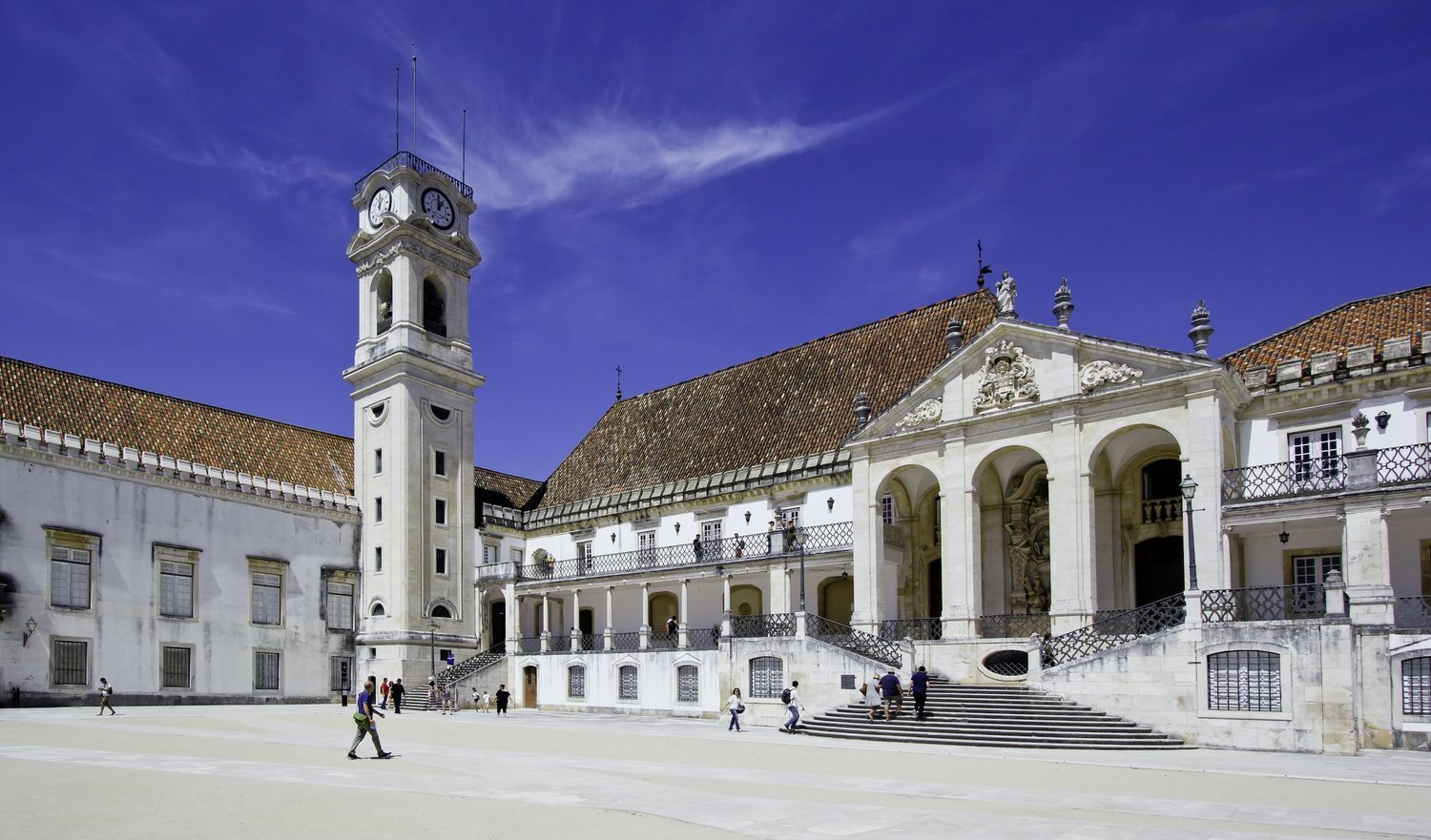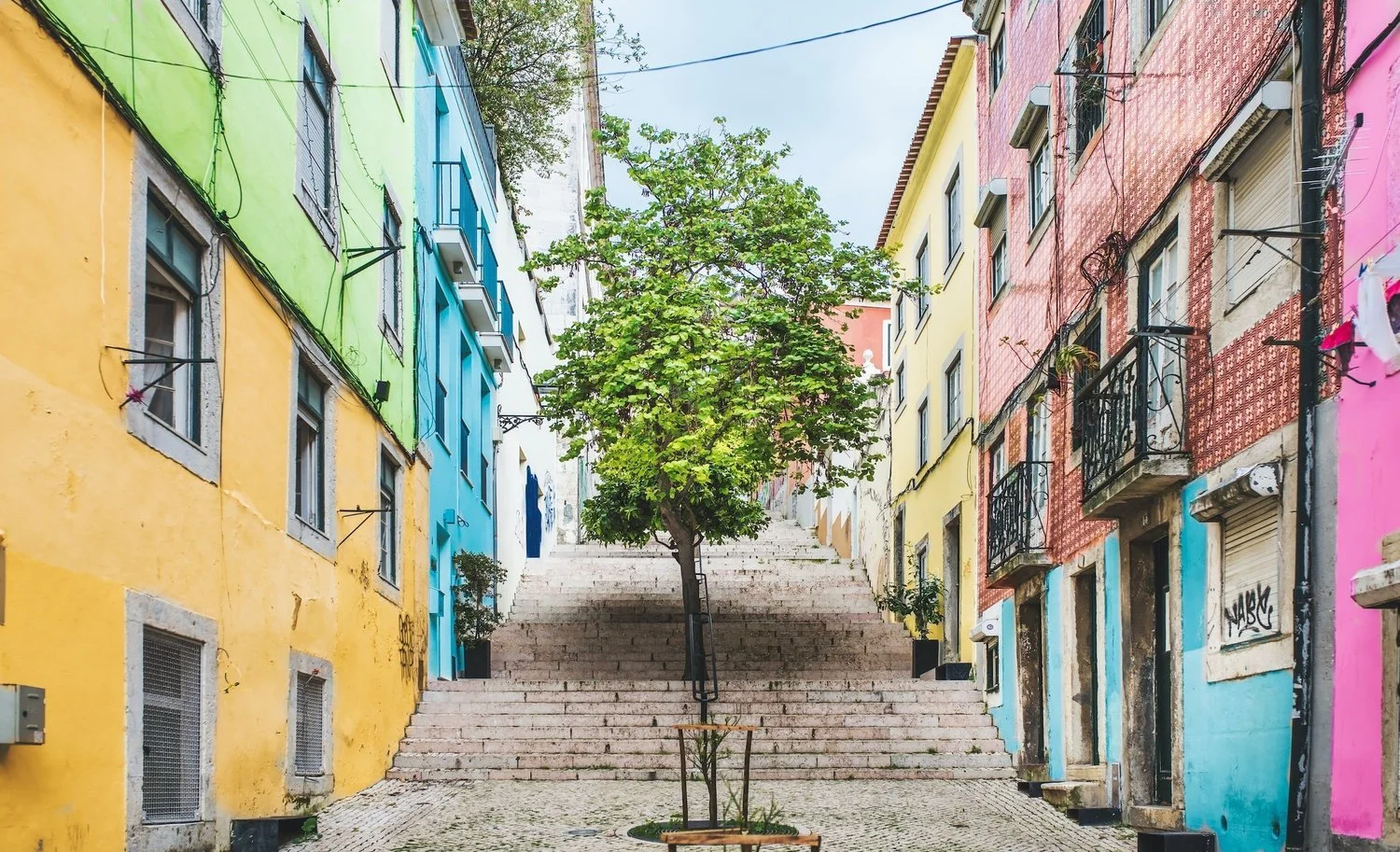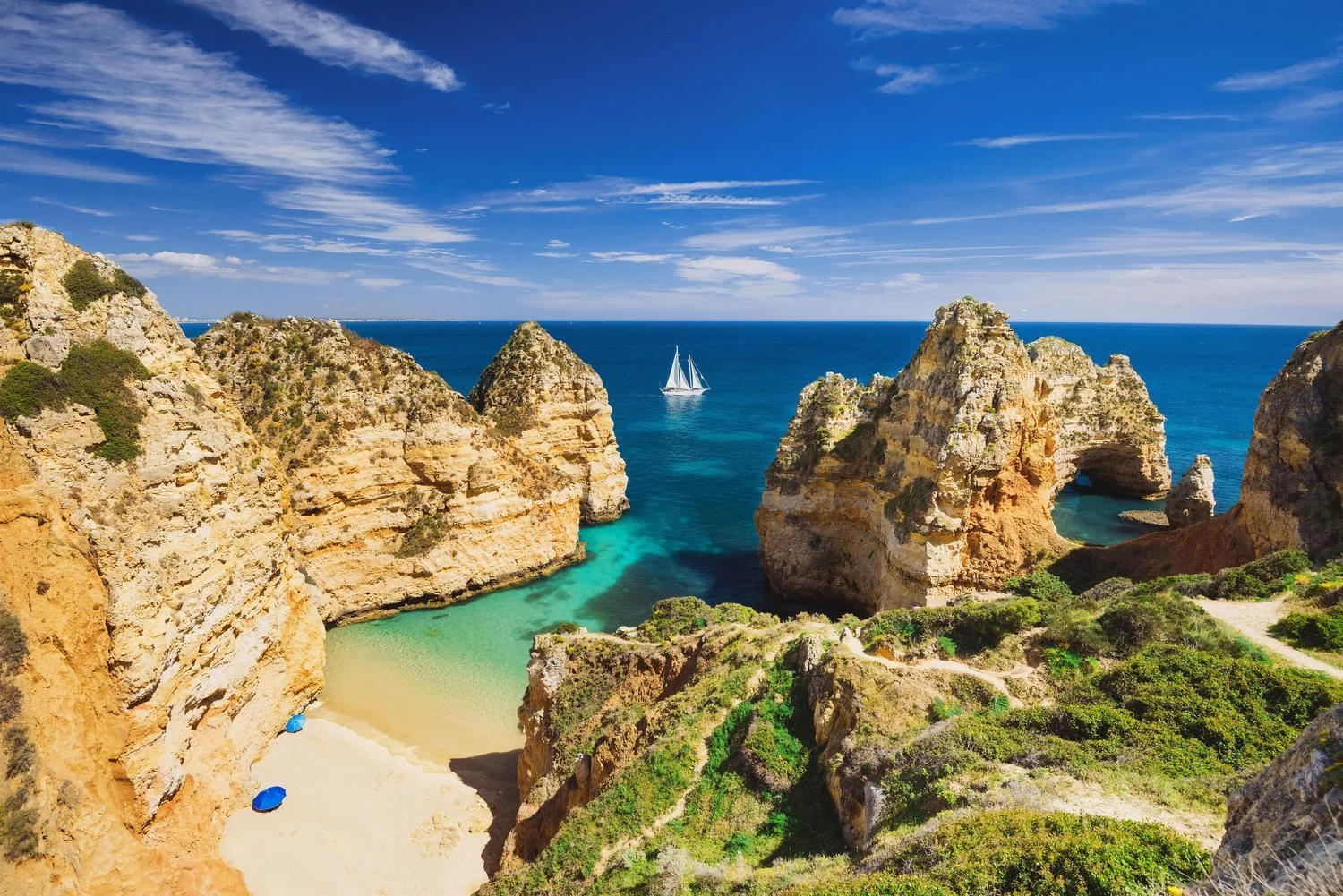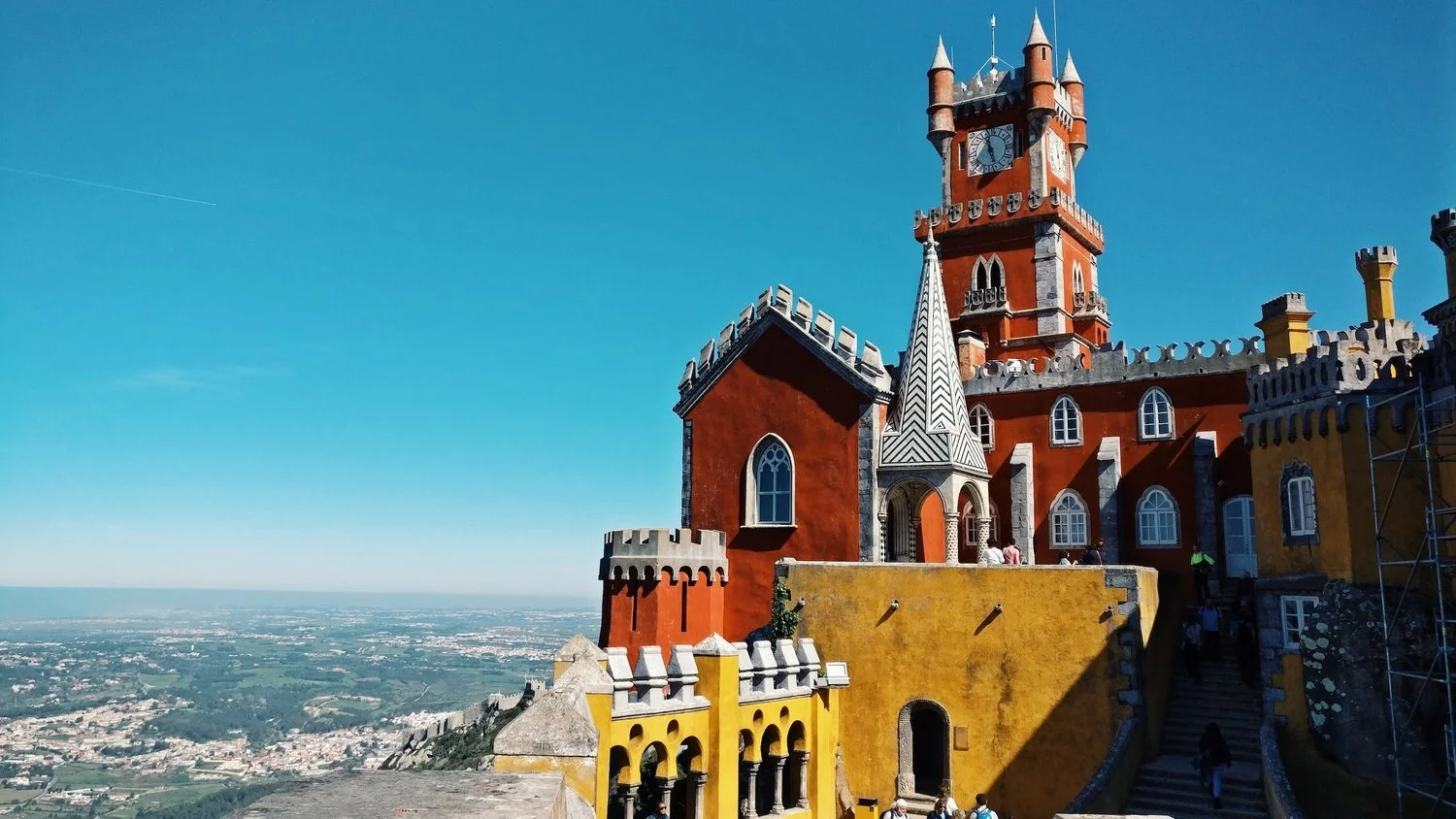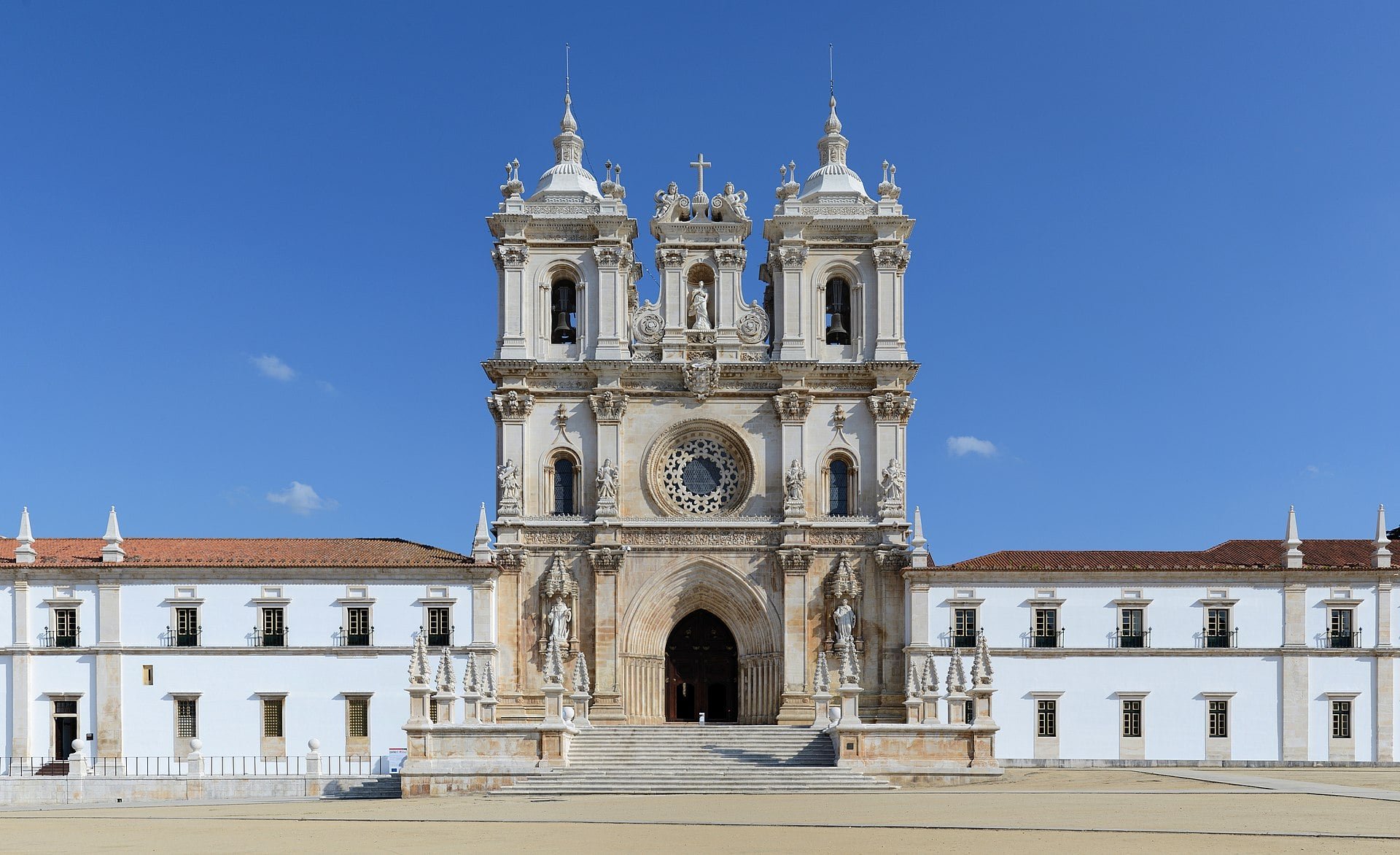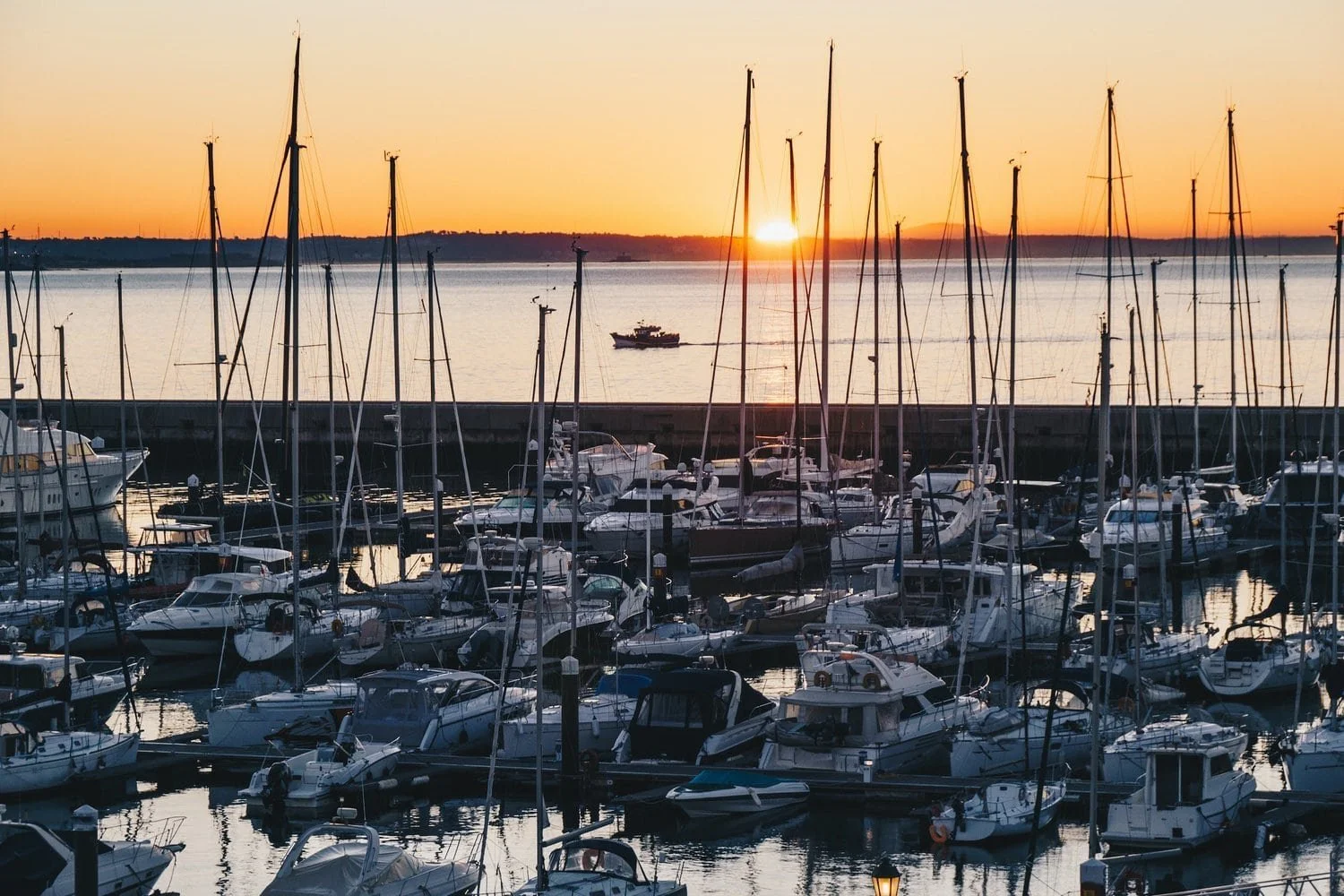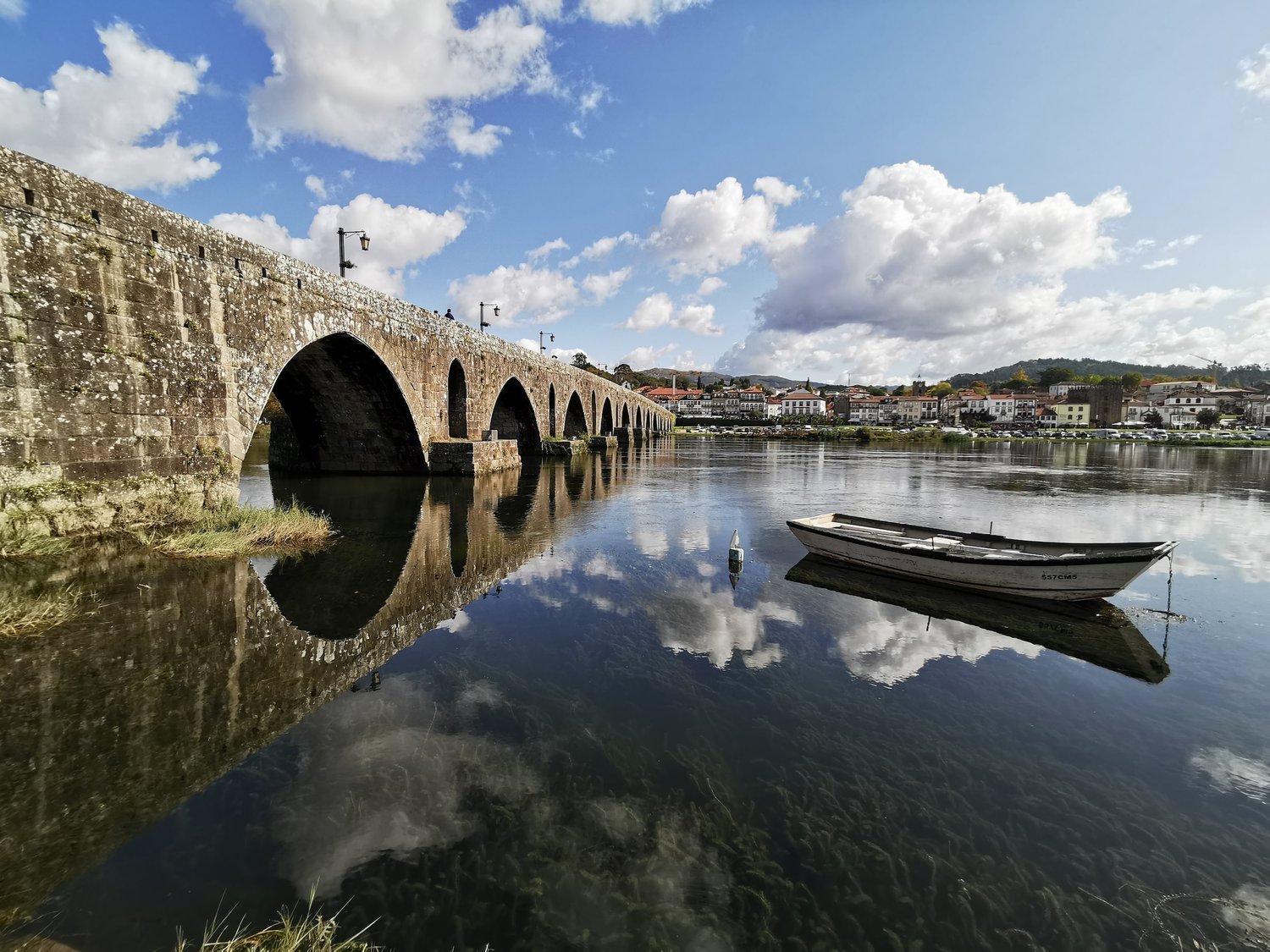Our Essential Guide to (some of) the Best Towns & Cities in Portugal
University of Coimbra, central Portugal
Ready to explore Portugal and the Portuguese lifestyle? We provide you with the chance to spend a day with a local relocation consultant. Click below to get to know about our scouting tours that can help you explore and relocate to Portugal.
If you are looking for a European destination packed with sun-soaked beaches, exhilarating nightlife, and ancient cities for sightseeing - then Portugal should be on your list. However, this small country on the Iberian peninsula is about more than just surfing and sipping on port wine; in each corner of Portugal, you'll find something unique to discover.
From vibrant capital city Lisbon, full of culture, to chic Porto, filled with traditional tiled buildings, to the stunning jewel of the Algarve, Lagos, there are so many cities in Portugal, each offering unique attractions – so whether you are just planning to visit on holiday, or you are looking for the best place to live in Portugal, read on to find out where some of the best must-see spots can be found!
Guide to the Best Cities to Visit in Portugal
Portugal is renowned for its stunning natural beauty, delicious cuisine, and rich cultural heritage. With so many exciting cities to explore, it can be hard to decide where to start, so we’re here to help you out.
Our first pick won’t be a surprise to anyone, but we couldn’t write this article without including the nations cosmopolitan, exciting, colourful (albeit a bit hilly) capital city…
Lisbon
Lisbon
Lisbon (Lisboa to the locals, who, confusingly are called Alfacinhas - pronounced Al-fa-see-nyas) is the capital city of Portugal and one of the oldest cities in Europe. Packed with lush green spaces, historical monuments, charming cobbled streets, hip bars, and modern amenities, there are plenty of reasons to explore this vibrant city.
One of the most iconic sights in Lisbon is Belém Tower – a 16th-century fortress built by King Manuel I to commemorate the Portuguese Age of Discovery. Other must-see attractions, if you’re in the market for some sightseeing, include Jerónimos Monastery, the charming Alfama District – Lisbon's oldest neighborhood - and head to pretty much any mirodouro (lookout point) for some awesome city views and probably some fantastic street musicians too.
The best way to experience Lisbon is by strolling along its cobbled sidewalks, ducking into old Portuguese traditional eateries and cafes for a pastel de nata and a bica, and admiring its architectural grandeur. From the iconic yellow trams that clamber up steep hills to beach bars packed with surf bums and beautiful people, there's something for everyone in Lisbon.
With so many parks, museums, galleries, and monuments to explore, it can be worth getting a Lisbon city pass, which gives you unlimited travel on city transport, and free admission to 39 museums, historic buildings, and more. It’s easy to find various entertainment options such as theatre shows, street performances, festivals, and nightlife spots. And thanks to its mild climate and great surfing beaches less than 30 minutes from downtown, Lisbon is an ideal place for outdoor activities throughout the year.
No matter your interests, you’ll find something special in Lisbon – a city that will leave you with unforgettable memories. With so many things to do and see, it's no wonder this vibrant metropolis is one of the best cities in Portugal.
Porto
The banks of the river Douro, Porto
In the north of the country and on the banks of the stunning Douro river, Porto is Portugal's second city. The historic center of Porto is a UNESCO World Heritage Site with many monuments, churches, gardens, and yet more cobbled streets, and being home to some of Europe's most remarkable landmarks and attractions, it's no surprise that Porto is fast becoming recognised as not just Portugal's, but Europe's best cities to visit.
There are plenty of cultures to experience, from Portugal’s traditional music, Fado, and dance performances to Boavista's colorful street art scene. Shopping enthusiasts can explore the lively Bolhão Market or wander through the fashionable shops of Rua de Santa Catarina.
Foodies should not miss the city’s delicious local specialties like port wine (unsurprisingly!) or the famous, wonderful hangover food that is the Francesinha (a really, really, really good ham sandwich).
Porto has something for everyone. Nature (and wine) lovers can explore the Douro River and its vineyards, while outdoor adventurers can hike up Serra do Pilar to admire the stunning views of the city or, like Lisbon, head for some of the amazing waves just a short distance from the city centre. There are also plenty of shopping opportunities, with plenty of stores offering everything from jewelry to clothes.
Porto has no shortage of fascinating historical attractions either. As long as you haven’t drunk too much port wine, head to the stunning Palacio da Bolsa, the São Francisco Church and the Clérigos Tower. The city's long history can be explored in its many museums, such as the Museu de Serralves or Fundação de Serralves. Porto is also home to some of the finest universities in Europe and offers a great range of cultural events throughout the year.
No matter what you're looking for, you'll find something special in Porto. With its rich culture, stunning architecture, delicious cuisine, and vibrant lifestyle, Porto is a must-visit destination in Europe and a place you should seriously consider living in to if moving to Portugal is on your ‘to-do list’ for the year.
A quick word of warning though…. The weather. Porto in the winter is not the land of glorious sunshine, white-sand beaches and azure waters that you might be picturing when you think about Portugal. It gets cold and it rains a lot. The plus side? If you are from the Northern hemisphere, that makes it feel a little more ‘Christmassy’ than our next entry into our list of favourite places in Portugal…(one ‘S’ in ‘Christmassy? Two? Not sure. Not really sure it’s even a word…) . Anyway, pack your sun cream and flip flops for one of our very favourite places in the World…
Lagos
Ponta da Piedade, Lagos, Algarve, Portugal
Truly one of the best cities and holiday destinations in Portugal, (although the author is a little biased on account of living here!) Lagos is an incredible place to live and visit on holiday.
OK, I’m a lot biased. I’m madly in love with my hometown. But I did travel to 75 countries before picking the one town on Earth I loved the most to settle down in, and I chose Lagos. That was 12 years ago now and I’ve never regretted it for a day. So I think I’m qualified enough to be able to tell you it’s awesome.
Surfing, nightlife, golf, incredible sea kayaking, jaw-dropping seafood, as-close-to-perfect weather as you can find in Europe, Insta-worthy views at almost every turn, many visitors who come to Lagos find themselves writing their resignation letters to work whilst sat on a stunning sandy beach with a local Sagres beer in their hand and never going home (guilty, your honour...).
While a slight downside is that Lagos remains heavily seasonal and there’s significantly less going on in winter (although it’s much better than it used to be with the growing population of digital nomads and remote workers), it’s still less than a three hour drive to either Lisbon or Seville so you can always get your big city fix a short drive away.
Fun fact: In 2012, travel website Tripadvisor named Lagos at the top of their list of the best holiday destinations in the world, but with a buzzing entrepreneurial scene and beautiful cowork facilities, good international schools nearby, and all the amenities you'll need, more expats are lured to stay than ever before and Lagos is becoming more than just a tourist town.
Sintra
Pena national palace, Sintra, Lisbon district, Portugal
Picture a fairytale castle scene, almost Disney-esque, where princesses hang their long hair out of turret windows to the handsome prince and his trusty donkey in the street below.... And you're probably picturing a scene that looks a lot like Sintra.
Sintra is a charming Portuguese town located on the coast of Portugal, just 30 km from Lisbon (so it makes a great day trip from the capital), with a breathtaking natural beauty and rich cultural heritage that has made it a popular destination for visitors in search of adventure.
This enchanting city is home to medieval castles, lush gardens, and majestic palaces such as the National Palace of Sintra, the former summer home of Portuguese kings and queens. The city has numerous historical monuments, including the ruins of a 9th-century Moorish castle, Pena Palace, and the ancient Castle of the Moors.
Other attractions include two monasteries –the Monastery of São Martinho de Tibães and Convent of the Capuchos – and several beautiful churches. The city is also home to numerous parks and gardens, including Parque de Pena and Quinta da Regaleira, both of which are UNESCO World Heritage Sites.
Sintra's unique architecture and culture make it an ideal destination for anyone looking for a memorable experience. With its stunning landscapes and rich history, Sintra is one of the best cities in Portugal – a must-see destination for any traveler, but it isn't just for tourists.
A short commute from Lisbon, and some fantastic international schools make Sintra an increasingly popular destination to consider moving to as well, if you are planning a new expat life in Portugal.
Sintra is a destination like no other – it's a place that will leave you with unforgettable memories for years to come. Especially if you and your family end up living there and one day you say ‘ Do you remember when we moved here?’. Everyone will say yes.
Coimbra, central Portugal
Coimbra
One of the oldest towns in the country, Coimbra is a beautiful city in central Portugal, home to some of the country’s most beloved attractions. It has been inhabited since prehistoric times, was properly established as a town almost 1,500 years ago and it was once the capital of Portugal during the Middle Ages.
Today, Coimbra is known for its historical monuments, cultural events, and educational institutions. The city is home to one of the oldest universities in Europe, the University of Coimbra, a UNESCO World Heritage Site.
The old town of Coimbra is an architectural gem, with its cobblestone streets and majestic monuments like the Se Velha Cathedral and Machado de Castro National Museum. Nature lovers can explore the university's ancient botanical gardens or stroll (or kayak) along the Mondego River.
Coimbra is also home to several cultural events and festivals, such as Semana Academica, Queima das Fitas, and Festa da Saudade. There are also plenty of shopping opportunities in Coimbra, with many shops selling everything from jewellery to clothes.
Coimbra is not an expensive place to live, even by Portuguese standards, and even though Coimbra isn’t as much of a buzzing destination as Lisbon or Porto, a good population of both students and tourists gives a cosmopolitan, multicultural feel to the town.
One of Coimbra’s main charms however is character, so whether you are planning to visit as a tourist, or searching for a place to live in Portugal, make sure this incredible town is on your shortlist.
Óbidos
The ancient city walls at Óbidos, Silver Coast, Portugal
Óbidos is a charming, walled medieval town in central Portugal. This beautiful city has been inhabited since the Roman era, and it is now full of historical monuments and sites that attract thousands of visitors every year.
The town is surrounded by a 12th-century fortress with walls and gates, offering stunning views across the countryside. Visitors can explore cobbled streets, colorful buildings, and a range of museums, churches, and other historical monuments inside the walls.
The town is particularly known for its traditional Portuguese architecture, with the whitewashed houses in the old quarter being some of the most iconic images of Óbidos. Other attractions include the 13th-century Gothic Igreja de Santa Maria and the Castelo Óbidos, a 13th-century castle perched atop a hill.
The town also has plenty of shops, restaurants, and various cultural activities throughout the year. Several festivals and events are held in Óbidos annually, including the Festa dos Tabuleiros and the Festa de Nossa Senhora da Piedade.
Alcobaça
Alcobaça Monestory, Alcobaça, Central Portugal. Photo credit: Berthold Werner
A bit of a lesser known gem to add to the list, Alcobaça is a small town in central Portugal inhabited since the Bronze Age. It is located on the Rio Bemquerem and is by lush green hills and rolling vineyards. Alcobaça was originally founded as a Roman settlement and later became an important center for Christian and Islamic cultures.
The town is known for its medieval churches and monuments, including the Abbey of Alcobaça, a UNESCO World Heritage Site. The abbey was built in the 12th century by King Afonso Henriques, and it stands as a symbol of religious power and influence in Portugal during that period.
Other attractions in Alcobaça include the Capela de Santa Catarina, a 16th-century chapel, and the Monastery of São Vicente de Fora, home to an impressive collection of Baroque paintings. Visitors can also explore the historic town center and its narrow cobbled streets lined with traditional Portuguese houses.
Alcobaça is also a great place to shop and explore. The town has plenty of shops, cafes, and restaurants that offer traditional Portuguese cuisines, such as pastel de bacalhau (codfish cakes), arroz de pato (duck rice), and feijoada (bean stew).
You won’t find many expats here, which, according to your preferences, can add to it’s charm, but it’s a great spot to explore to experience traditional , authentic Portugal.
Evora
Temple Diana, Evora, Alentejo, Portugal
Evora is a city in southern Portugal with a rich history and cultural heritage. In the heart of the gastronomic paradise which is the Alentejo region, it has been inhabited since prehistoric times and was once an important center for the Roman Empire.
Today, Evora is home to many historical landmarks, including the ancient walls surrounding the old town and numerous churches and palaces. The city’s main attractions include the Roman Temple of Evora, one of Portugal's most important monuments.
Evora also boasts several other sights and attractions, such as the medieval University of Evora, founded in 1559, the Grão Vasco Museum, which houses a wealth of art and artifacts from the Portuguese Renaissance, and the 16th-century Palace of Evora.
The historic center is known for its winding streets and picturesque squares, while the modern suburbs have a range of shops and restaurants. The city is also home to numerous festivals, events, and markets throughout the year.
Evora’s warm climate (to put it mildly. Evora gets baking hot in the summer) and abundant sunshine make it a popular tourist destination throughout the year. Visitors can explore the city’s rich culture, history, and art while taking in its stunning landscapes and enjoying some of Portugal's best gastronomy. From ancient monuments to bustling markets and lively events, Evora is an unforgettable experience.
Cascais
Cascais Marina, Cascais, Lisbon District, Portugal
Cascais is a coastal city in Portugal located just outside of Lisbon. It has long been a popular spot for travelers worldwide and has a rich history of culture and tradition. Cascais offers something for everyone with its beautiful beaches, stunning views, and charming old town.
Visitors can explore the old town's winding cobblestone streets and hidden alleys, lined with traditional cafes and restaurants. The city’s main square, Praça da República, is great for people-watching.
There are plenty of things to do in Cascais. There is something for every visitor, from water sports such as surfing, windsurfing, and kitesurfing to cultural attractions such as the Cascais Cultural Centre. The city’s spectacular coastline also offers plenty of opportunities for exploration, with several beaches and small coves to be discovered.
Cascais has many historic monuments and sights, including the 16th-century Nossa Senhora da Luz Fort, the grand 18th-century Chafariz do Forno Park and the imposing Casa de Santa Maria. Visitors can also explore the remnants of Cascais’s past at the old fishing village of Cacilhas.
Cascais is a city steeped in history and culture, and its unique charm makes it one of Portugal’s best cities to explore. From stunning beaches to vibrant culture and pastel-colored architecture, Cascais is a must-see destination for any traveler.
Cascais is a massively popular destination for expats too, with fantastic international schools and a very high quality of life. If you are considering moving to Cascais, be sure to check out our scouting tours, which will help you discover everything you need to know about the city.
Viana do Castelo
Bridge over the Limia River, Viana do Castelo, Minho region, Northern Portugal
Another less-known Portuguese gem to add to the list, Viana do Castelo is a coastal city in northern Portugal known for its stunning scenery and rich culture. With its winding streets, historical monuments, and vibrant atmosphere, it’s no wonder why Viana do Castelo is one of the best cities in Portugal to visit.
The picturesque port town has been inhabited since the Iron Age and has a long history of culture, art, and religious devotion. Viana do Castelo’s most notable monuments include the 16th-century churches of São Francisco de Assis and Santa Luzia and its robust fortifications, which have stood for centuries.
The city is also renowned for its cuisine, featuring dishes heavily influenced by the region's seafood. Visitors can experience traditional Portuguese cooking at one of the many restaurants or sample local delicacies such as shrimp, sardines, and octopus.
Viana do Castelo is known for its vibrant nightlife and annual festivals, including the world-famous Festival de São João. During the festival, locals and visitors flock to the city’s streets for a night of festivities and music.
The bustling city has something for everyone, from its stunning architecture and beautiful coastline to its vibrant culture and exciting events. Whether you are looking for some relaxation or an adventure, Viana do Castelo is a must-visit destination. It proves why this city is one of the best cities in Portugal.
Like Porto (and all other northern cities) however, if you are dreaming of wall-to-wall sunshine and year-round hot temperatures, Viana do Castelo might not be for you. Better weather than the UK, Scandinavia, and parts of North America for sure, but if you are set on moving to Portugal to enjoy mild , sunny weather, you’re probably better off moving to the Algarve.
These are some of the most beautiful cities in Portugal. From Lisbon to Alcobaça, and everywhere in between. Visitors can explore various historic sites, participate in various cultural activities, and savour some traditional Portuguese cuisine. Whether looking for culture and history or wanting to relax and enjoy the sunshine, these cities have it all.
FAQs
What are the top tourist attractions in Portugal?
Portugal is a popular tourist destination, boasting many natural attractions and historical sites. Some of the top tourist attractions in Portugal include the beaches of the Algarve, the Castles of Sintra, the historic towns of Evora and Coimbra, the Douro Valley vineyards, and Lisbon's vibrant culture.
What is the nicest part of Portugal?
Portugal has many beautiful areas, and choosing just one as the nicest is hard (although the authors vote for most best part of Portugal is Lagos!). However, some of the most picturesque parts of Portugal include the Algarve coast and its stunning beaches, the rolling hills of the Minho region in Northern Portugal, and the Douro Valley's stunning landscapes with terraced vineyards.
Is it easy to settle in Portugal?
Yes, Portugal is a great place to settle down. The country has an excellent infrastructure and a low cost of living compared to other European and North American countries. It is also quite easy to get a residence permit in Portugal if you meet the requirements. Several programs are available for people looking to relocate and establish themselves in Portugal, such as the D2 entrepreneur visa, D7 Passive Income Visa, or Digital Nomad Visa.
What are the best restaurants in Portugal?
Portugal boasts some of the best cuisines in Europe, from traditional favorites like bacalhau (salt cod) to modern Portuguese dishes and wonderful food can be found in small town cafes, food trucks or Michelin starred restaurants. If you’re in the market for some top end food in Portugal check out The Yeatman in Porto, Belcanto and Bairro do Avillez in Lisbon, and Fortaleza do Guincho in Cascais.
What is the best way to get around in Portugal?
The quick answer is that if you are sticking to the bigger cities, buses are cheap, efficient and cover the routes between nearly every town and city in Portugal. If you plan on seeing remote beaches, villages and countryside, you’re probably better of hiring a car.
Conclusion
Portugal is a fascinating country, but more than that, it's an enchanting and diverse mix of nature, culture, and history. From its surfing paradise coasts to the iconic Portuguese gastronomy and impeccable wines – whatever your heart desires, you can find it in this beautiful country! Whether your motivation is sightseeing, partying, relaxing on a beach, or planning a permanent move to Portugal, there are so many cities in Portugal to see and explore.
Wanna know more about Portugal and the Portuguese life? Thinking of moving to Portugal? Questions on visas? Healthcare? Expat life? Where you should live? Download our “Portugal Beckons - Book”, read by over 700 expats.
Disclaimer: Our posts might contain affiliate links, which means we earn advertising fees if you make a purchase. There's no extra cost to you, it just helps us keep the website going.

